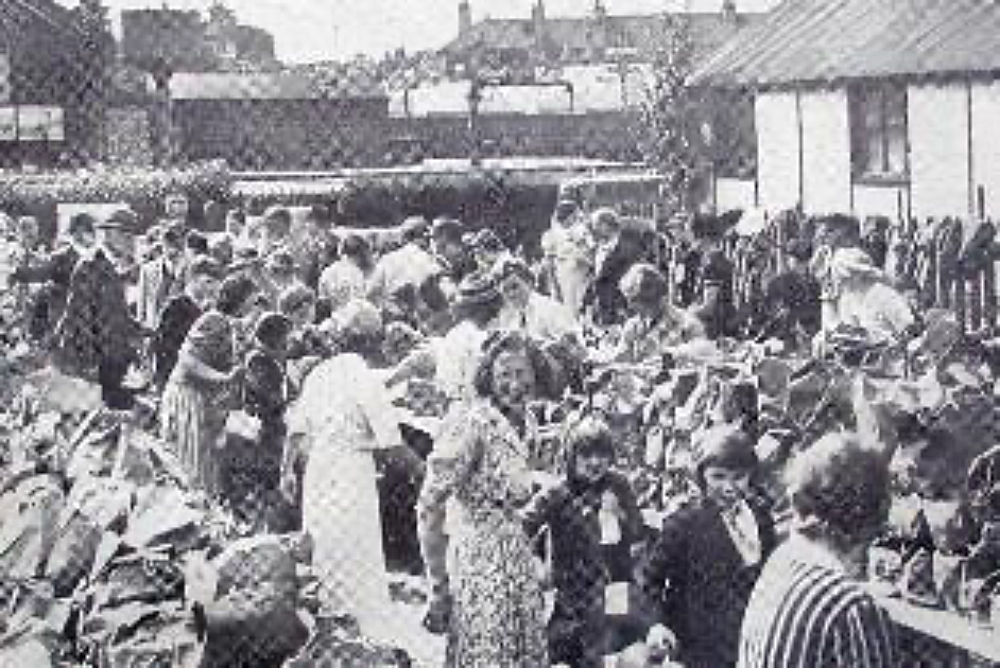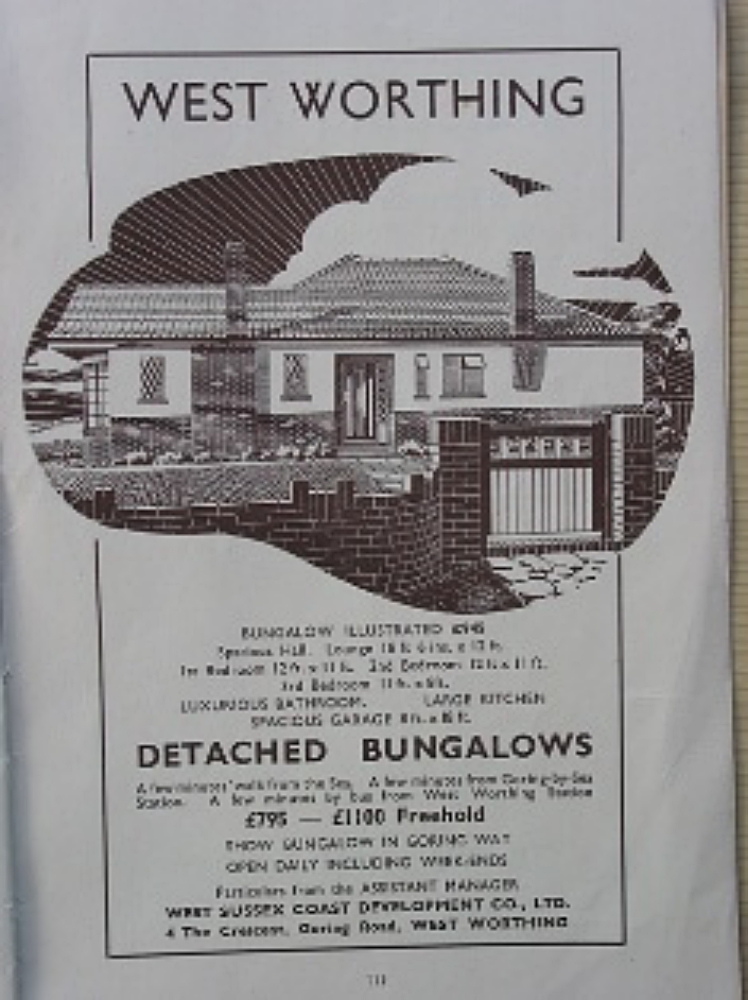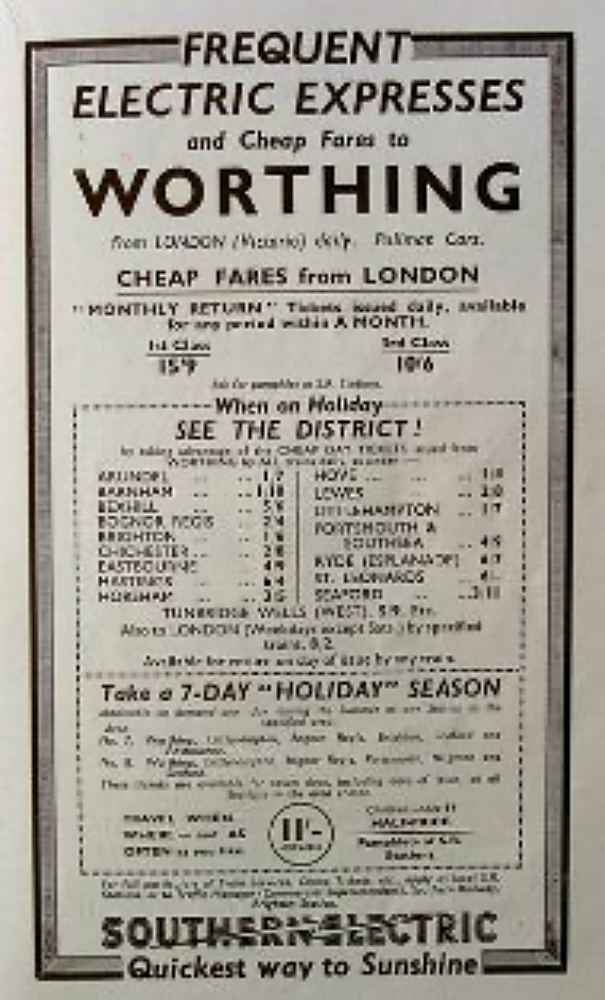The days before war broke out
ARP precautions prior to the outbreak of war in 1939. On the left, children leaving an air raid shelter in Stoke Abbott Road, on the right, first aid volunteers attending to the “wounded”NOBODY living in 1939 will forget it was the year Britain joined the fight against Hitler by declaring war against Nazi Germany.
As we enter the 70th anniversary of the traumatic year in which our nation rapidly became embroiled in World War Two, Freddie Feest recalls the sometimes unexpected reactions of local residents.
ALTHOUGH Britain did not declare war until September 3, the first days of 1939 witnessed related events that startled residents.
Since early 1938, preparations for war had been appearing everywhere, including the building of the first shelters to protect residents during the air raids that were ominously predicted.
In a field at Poling, between Worthing and Arundel, mysterious giant pylons were being erected. The mere fact that the authorities kept their purpose top-secret implied a use detrimental to any enemy in a future war.
Gas attacks, which had such a devastating effect on the Western Front in the First World War, were a major concern and gas masks had already been issued to most people during an international crisis in the autumn of 1938.
Most people hated their smell – a mixture of rubber and disinfectant – and, for many, they were ill-fitting, made to fit individual faces by adjusting the straps.

Those beyond infancy at the time will recall exactly where they were and what they were doing when the first air raid siren sounded within minutes of war being declared at 11am on Sunday, September 3, 1939.
Some were at church; others panicked at home as they rushed around the house closing windows to prevent the worst effects of what they had been assured would be a poison gas attack. But war is totally unpredictable and there was no gas attack on Britain during the entire war.
Late sleepers on that morning were blissfully unaware of the traumatic events unfolding until awoken by the wailing of air raid sirens.
Even today, many do not know what was going on in the town around them as they leaped out of bed that morning and slammed the windows to keep out the wailing noise rather than chemical weapons.
There were many, however, who were aware that the world was about to change forever.

When the first air raid warnings wailed across south coast towns at 11.30am, the congregations of most churches left in an orderly manner, though one vicar finished the second lesson to find his congregation “almost on the point of stampeding”. He managed to rally them and, before they left, persuaded them to join in a final prayer.
The warning sounded just as one of the special trains crowded with evacuee children from London drew into Worthing.
The children lined up calmly on the platform and were shepherded down into the subway passing beneath the railway lines, where they waited until the “all clear” came. The danger in this was not realised until later – that if this had been a real air raid instead of the false alarm it turned out to be, a main target for the bombers would have been the railway station and the lines running through it!
Volunteers, many of whom could recall the First World War, were full of admiration for the cool way the children did as they were told.
Worthing’s head post office had specially opened for business that Sunday and, when the sirens sounded, there was a rush for shelter into the public part of the building.
A few children cried, but were soon pacified. They waited patiently, many sitting on the floor, until members of the post office staff conducted them down to the more secure basement.

One toddler remarked as he left the building: “Mummy, are we coming down here tomorrow?”
Many holidaymakers on the beach and Pier rushed into the town as the sirens sounded.
The majority of those between Splash Point and the Pier converged on Steyne Gardens, where air raid trenches had already been prepared.
There were the complainers, of course, mainly people who had not properly read the air raid precautions leaflets delivered to every house in town during the preceding weeks.
Some protested that the warbling note of the air raid alarm had not been pronounced enough.
They did not really believe it was an air raid. Others took it as being a test alarm.
When the steady wail of the all-clear signal was given, a surprising number believed it signified the start of another raid. As a result, air raid wardens and others whose job it was to know were kept busy explaining the difference – warbling note for “air raid expected”, sustained note for “danger passed”.
Some wardens found it impossible to persuade many 11.30am bathers to even leave the sea.
Half the population of Findon Valley did not hear that first air raid siren of the war, which led the chief ARP officer to circulate a request for people to write to his headquarters at Beach House, saying whether they heard the warning – and how clearly.
Nothing pulls the British together like adversity and Worthing householders in general were quick to help those caught in the streets on that first day. One notice on a house door read: “Open door. Come in for shelter”.
People caught in the open streets and parks hurried to any kind of shelter available, like the ARP headquarters at Beach House. Even when told it offered no protection from bombs, it was besieged by crowds of holidaymakers, who refused to leave.
The all-clear siren sounded within a few minutes and, five minutes later, there was a queue of people waiting for gas masks outside No 6 Group ARP headquarters in Broadwater.
More than 150 gas masks were issued from that depot the same day and wardens, after finishing their street duty, were called by telephone to assist with the fitting.
“These people have had nearly a year to get their gas masks and six months to get their boxes”, one warden complained, “and, by leaving it to the last minute like this, they are greatly impeding our other work.”
How British.